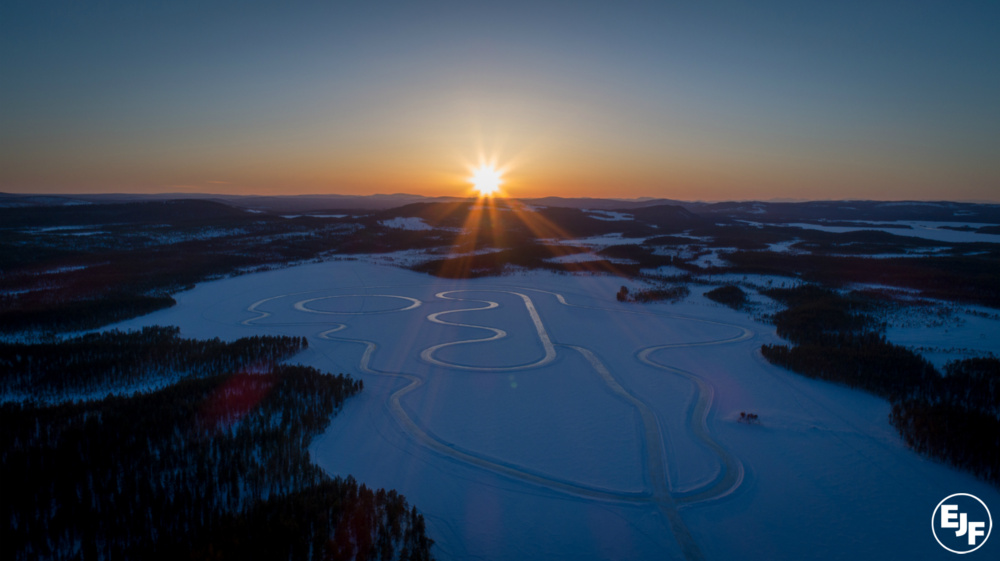
This is about more than polar bears: world leaders must stop global heating
Today on World Polar Bear Day
(February 27) the Environmental Justice Foundation (EJF) is calling
on world leaders to show genuine leadership and take action to stop
the climate breakdown.
Polar bears will be wiped
out by the end of the century unless more is
done to tackle climate change, and the species is already listed as
vulnerable to extinction by the International Union for Conservation
of Nature (IUCN), with climate change highlighted as a key
factor.
The best way to look after them and all living things
on Earth is to move rapidly to a carbon-neutral economy.
Founder
and executive director of the EJF Steve Trent says:
“It’s
not just the fate of the polar bears that is in our hands now, rising
sea-levels and more extreme weather will devastate both natural
ecosystems all over the world and the communities that depend on them
– the humans and the wildlife.
“All across the world those
who contributed the least to our heating planet – its poorest and
most vulnerable – are being affected first and worst, while the
world’s wealthy are still able to avoid the worst
consequences.
“This must stop, now. We need to rapidly move
towards a zero-carbon economy and this must be completed by 2035. We
cannot wait any longer.”
The EJF is calling on all countries
to rapidly and fully implement the global climate deal agreed in
Paris and support efforts to raise their emission reduction pledges
over time in line with its overall goal to phase out man-made
emissions and keep temperature rise below 1.5°C on pre-industrial
levels.
Steve Trent says:
“The COP26 climate
talks this year will be the most important meeting for generations.
They will set us on the road to either a sustainable future for
humanity or conflict, suffering and mass extinctions.
“The
climate emergency is the defining issue of our time, and we demand
bold leadership which recognises the intertwined crises of climate,
biodiversity, and human rights and implements meaningful policies to
address them together.
“Only then can we truly secure the
future of the polar bear.”
SIGN UP FOR OUR EMAILS AND STAY UP TO DATE WITH EJF